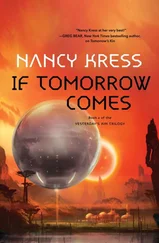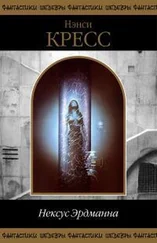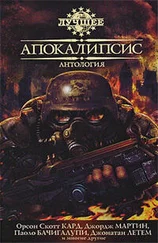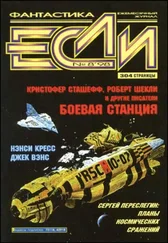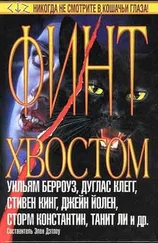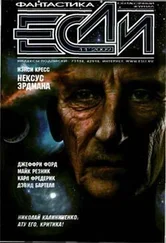There would be no snow when she returned home in two weeks. It was late July, though Neta had to constantly remind herself of the date. Down in the Den—as she and the six other scientists had nicknamed their base—time had little meaning. Up here on the moon’s surface, time had a different way of catching her off-guard. It was easy to spend uncounted minutes staring into the dark of space.
Which was exactly what she was doing now. Neta gave herself a little shake. She turned and waved to Anson Lefebvre to signal that they were finished and started the careful, bouncing walk back to the Den, the thin Frenchman following in her wake.
She stole glances at the sky and felt a familiar ache. She wanted to go home, yes, but she loved the moon. The low gravity that let her fifty-something bones rest more comfortably, the vast expanses, the dome of stars undimmed by human light. It took willpower not to tear off the tight, suffocating helmet and leap into the sky. She wished Lucita, her daughter, could share this. Last she’d heard though, her not-so-baby girl was studying art history at Berkeley.
That would be the best part of going home, she knew: the air. For nearly three months she hadn’t taken a breath that someone else hadn’t breathed first. The air in the Den wasn’t much better than the canned air inside her suit. She missed wind.
The Den was dead silent by the time she and Anson finally made it through the locks, stowed the moon-walking equipment, and descended down the long ladder into the base. Usually there was music playing outside of the listening chambers, everything from David Bowie to Mozart to the Black-Eyed Peas rattling down the narrow hallway from the common room, which served as both galley and crew mess. The Den was laid out like a tree, with the main hallway acting as a narrow trunk that anchored the small, box-like rooms branching off of it.
Ray Fulke—one of her fellow Americans at the base—leaned his balding head out into the hall. “Anson, Neta, get down here.” His voice sounded high and the tiny hairs on the back of Neta’s neck prickled.
Neta and Anson exchanged a glance and went. Neta felt the same dread she’d had right before the phone had rung and told her that her nana was in hospital, that she needed to say goodbye. The common room smelled more heavily of sweat and coffee than usual, the anxiety in the air almost chewable.
Neta looked around the grim-faced room, everyone sitting with tablets in front of them. Shannon Delaney, from the EU like Anson and the only other woman on the base, looked about ready to cry, her thin shoulders shaking as she rocked slowly back and forth on the edge of her chair. Ray, too, looked near tears, his eyes puffy as though from lack of sleep. Jie Lin, a brilliant young astronomer from the China National Space Administration, was muttering in Mandarin and twitching through data on his tablet, his dark eyes fixed on the screen.
Neta sat down heavily next to Kirill Bagrov, an analyst from ROSCOSMOS. He was a big man, rawboned and friendly. Ray, Neta, and Kirill had all bonded by being the scientists over fifty, teasing the younger ones about the “good old days” of the space race. His gray eyes wouldn’t meet Neta’s brown ones, his big hands shuffling a mostly empty cup of coffee back and forth on the scuffed metal table.
“Well, since we’re all here, I know no one has died, so someone spit it out. What could possibly have happened in the last six hours?” Neta spoke more sharply than she meant to, but the lack of eyes meeting her own and the tension scared her.
“We’re all going to die,” Graham Moretti said. His mohawk, which had been steadily growing out in the two months he’d been on the far side of the moon, looked as though he’d spent the last few hours running his sweating hands through it. He finally met Neta’s eyes and all she saw in them was despair.
“What?” she said.
“That data, that weird interference we had for last week? Today we figure it out.” Kirill lifted his cup and drained the last of his coffee. A few drops caught in his beard, like muddy tears.
Neta shivered and looked helplessly at Ray.
It was Shannon who spoke, however, “There’s a dwarf planet heading for the moon. Or we’re heading for it. However you slice it, we’ll be in the way of it in less than forty hours.”
“The array you fixed today, the one that got hit by debris last week, it confirmed the vectors and gave us enough of the picture,” Ray added.
“ Merde ,” Anson said. “Why did we not see this?”
“A perfect storm of events,” Ray said. “The object is coming down perpendicular to the solar system’s orbital plane. It has no atmosphere and is very dense. Plus it’s summer and the object has passed over the sun, coming in at a right angle to Earth. Earth probably won’t even see this thing until it’s hours away from impact. With us.”
“We only see because we have instrument pointing out, because we observe from off-planet, and we see too late.” Kirill shook his head.
Neta took a deep breath. Her job wasn’t to analyze data. She dealt strictly in things she could touch and manipulate. It was up to her to keep the arrays in working order, to clear dust and repair issues caused by incoming debris, radiation, and whatever else the solar system threw at them.
“So, basically, Pluto is heading straight at the moon?” Neta asked. “And we have no time to evacuate? What about the med-evac shuttle?” She twisted her hands together, willing herself not to panic, not to question. These were six of the smartest men and women she’d ever met. If they said something was about to happen, she trusted them.
“Not Pluto.” Kirill’s smile was small and grim. “ Bigger .”
“The med-evac can hold two,” Shannon said. “We’ve been discussing that. We wanted to wait until you and Anson came back, didn’t want to call you in until we were sure.”
“ Three ,” Anson said. “It is designed for two, yes, but we tested it with three. It will be an uncomfortable ride, but three of us could make it back to Earth.”
“We have to go to the com station to warn them anyway,” Ray said.
The communications station was to the north at the crown of the moon, between Meton B and C . The team generally sent two people, Jie and either Anson or Graham, twice a week to send out status reports and collect news from home. Supply and staff changeover shuttles only came every three months. There was a single shuttle kept in a special structure next to the tiny com base that could take two people back to Earth in the case of medical necessity. It was checked for repairs and refueled every six months. In the three years that the Far Side Array had been operating with staff, no one had ever needed to use it.
“Can we make it back to Earth before Pluto’s bigger brother hits the moon?” Neta tried to keep her voice calm, to ignore the feeling of her stomach turning to ropes. The journey to and from Earth usually took about two days, sometimes a little less. It helped her to think about rational things, to fight the mounting panic as what the others were so rationally discussing started to sink in.
“If we leave in no more than three hours,” Ray said.
Silence. Jie set his tablet down. Kirill’s cup scraped on the table, back and forth, back and forth.
Unless she was chosen, she would never feel wind again. Never take a hot bath. Never kiss her husband’s cheek when it was soft and fresh from shaving. Never see her Lucita graduate from college.
“No air,” Neta gasped, her hands windmilling at the suddenly too small room. She tried to get up from her chair and bounced hard against the table. Arms caught her, Shannon’s soft London accent murmuring soothing words. Someone pressed the cool metal edge of a cup to her lips and Neta made herself drink. The water was cold but stale, as the water there always was.
Читать дальше

